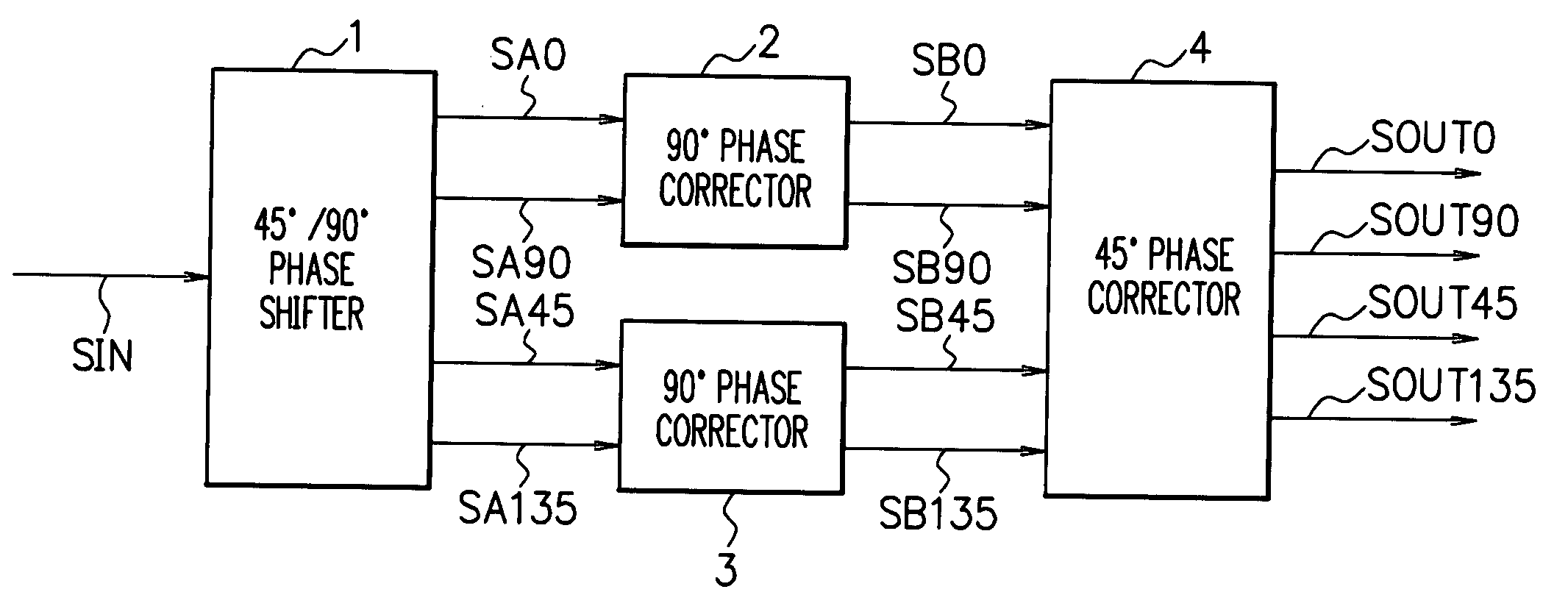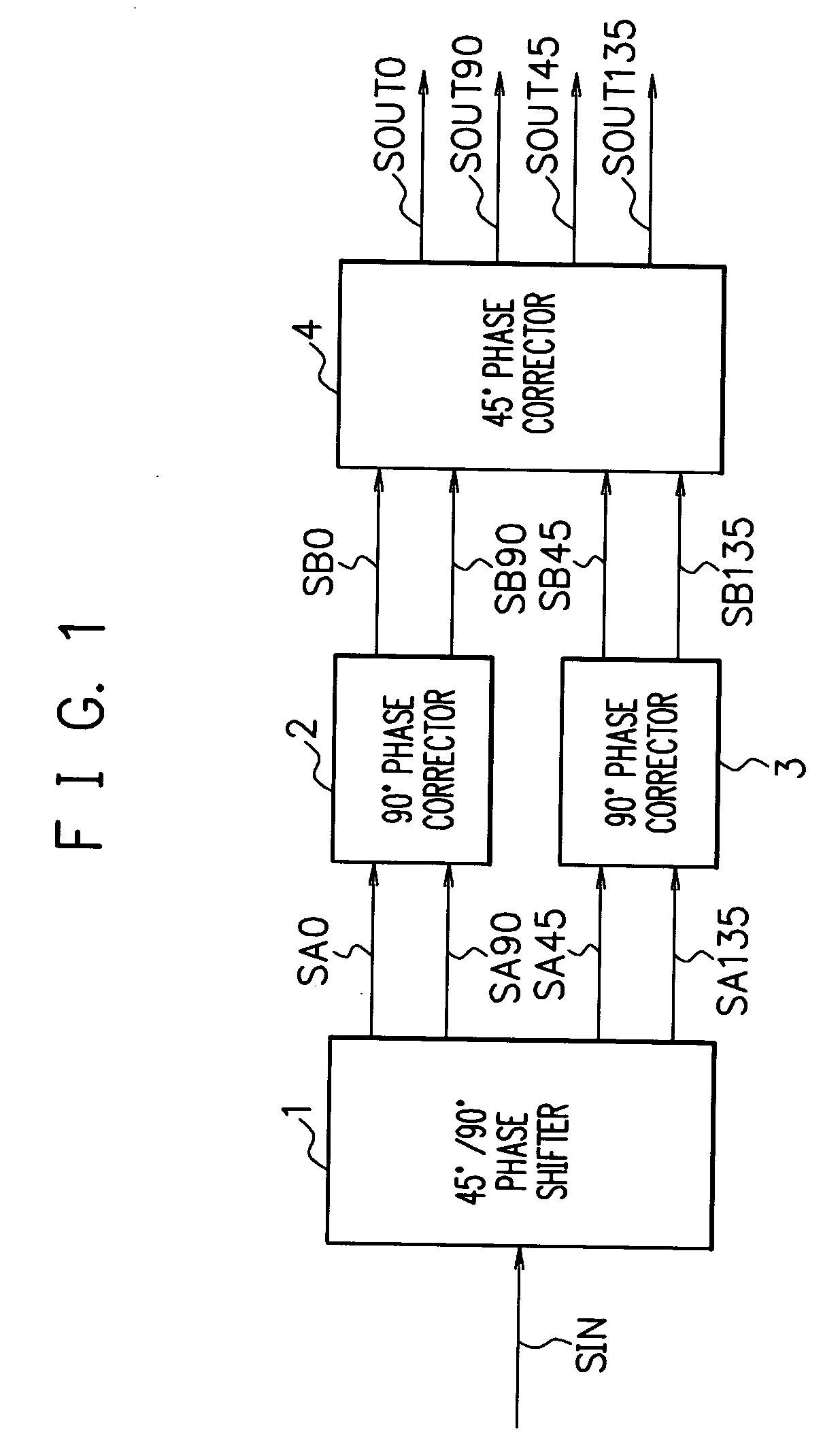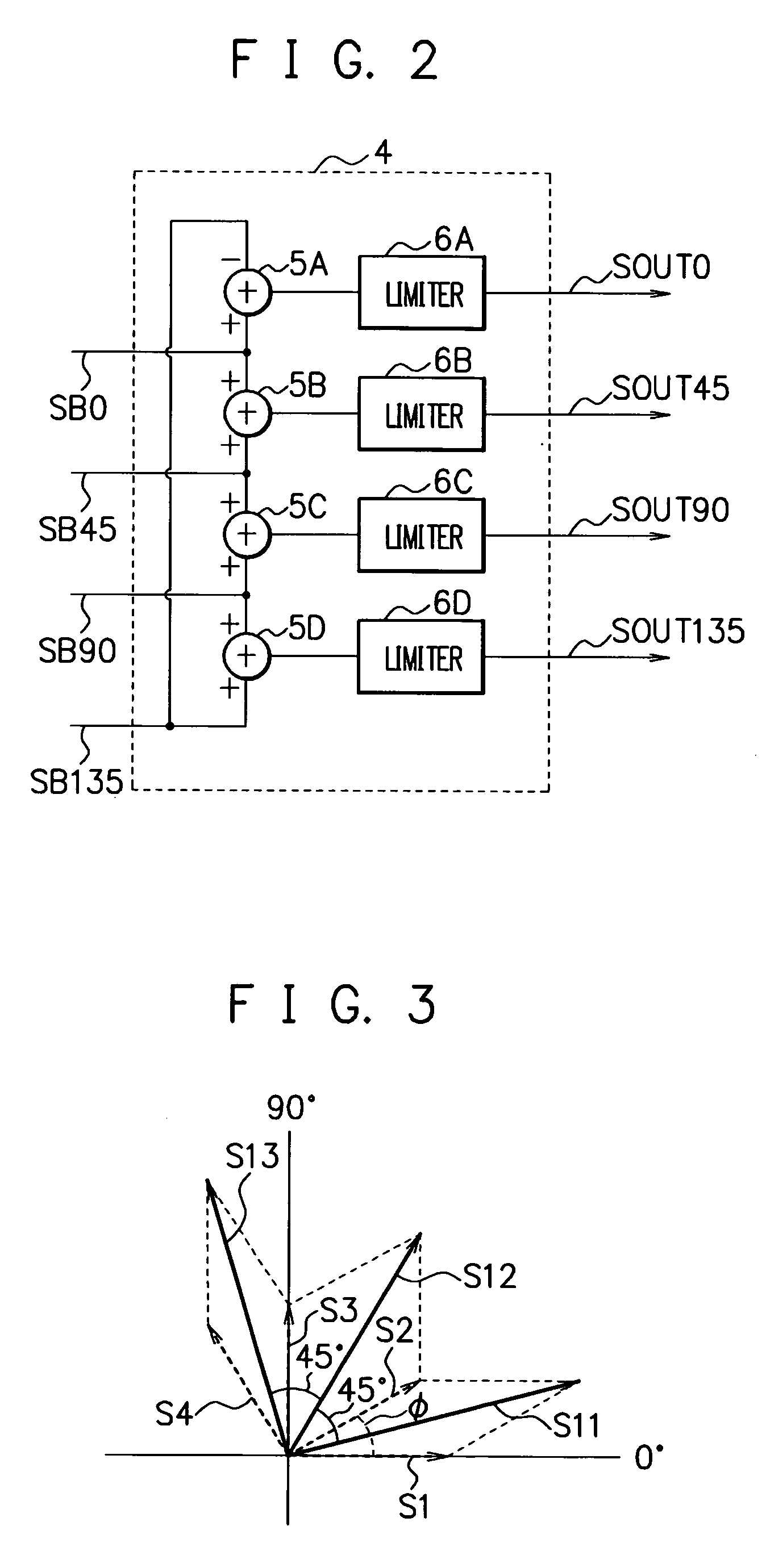Phase shift circuit and phase correcting method
- Summary
- Abstract
- Description
- Claims
- Application Information
AI Technical Summary
Benefits of technology
Problems solved by technology
Method used
Image
Examples
first embodiment
[0055]FIG. 4 is a view showing a configuration example of a 45° phase shift circuit in a first embodiment of the present invention. The 45° phase shift circuit has a 45° / 90° phase shifter 11, two 90° phase correctors 12, and a 45° phase corrector 13.
[0056] The 45° / 90° phase shifter 11 is a primary CR-LPF type 45° / 90° phase shifter for phase-shifting an input signal by an integral multiple of 45°, and receives differential input signals IN, INX to output a 0° signal SC0, a 45° signal SC45, a 90° signal SC90, and a 135° signal SC135 supposed to have 0°, 45°, 90°, and 135° relative phase differences respectively at a center frequency f0. That is, the 45° / 90° phase shifter 11 receives the differential input signals IN, INX to output the four-phase signals SC0, SC45, SC90, and SC135 with the frequency f0, having a phase difference of about 45°.
[0057] The 45° / 90° phase shifter 11 is constituted of a CR network including resistors R1˜R4 and capacitors C1˜C4, and circuits each constituted...
second embodiment
[0091] Next, a second embodiment will be described.
[0092]FIG. 10 is a diagram showing a configuration example of a 45° phase shift circuit in the second embodiment of the present invention. The 45° phase shift circuit in the second embodiment has a 45° phase shifter 41, 90° phase shifters 42, 43, 90° phase correctors 44, 45, and a 45° phase corrector 46.
[0093] The 45° phase shifter 41 is a primary CR-type 45° phase shifter constituted of a CR network, in which circuits each constituted of one resistor Ri and one capacitor Ci (i=any integer out of 41-44) connected in series are connected in parallel between signal lines through which differential input signals IN, INX are inputted.
[0094] The 45° phase shifter 41 receives the differential input signals IN, INX to output a 0° signal SF0, a 45° signal SF45, a 180°signal SF180, and a 2250 signal SF225 which are supposed to have 0°, 45°, 180°, and 2250 relative phase differences respectively. Incidentally, resistance values of the resi...
PUM
 Login to View More
Login to View More Abstract
Description
Claims
Application Information
 Login to View More
Login to View More - R&D
- Intellectual Property
- Life Sciences
- Materials
- Tech Scout
- Unparalleled Data Quality
- Higher Quality Content
- 60% Fewer Hallucinations
Browse by: Latest US Patents, China's latest patents, Technical Efficacy Thesaurus, Application Domain, Technology Topic, Popular Technical Reports.
© 2025 PatSnap. All rights reserved.Legal|Privacy policy|Modern Slavery Act Transparency Statement|Sitemap|About US| Contact US: help@patsnap.com



